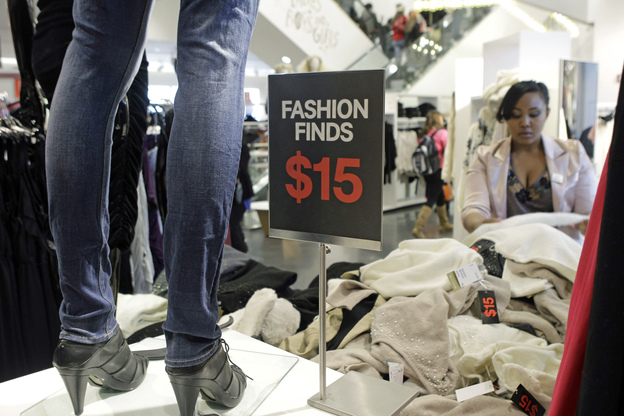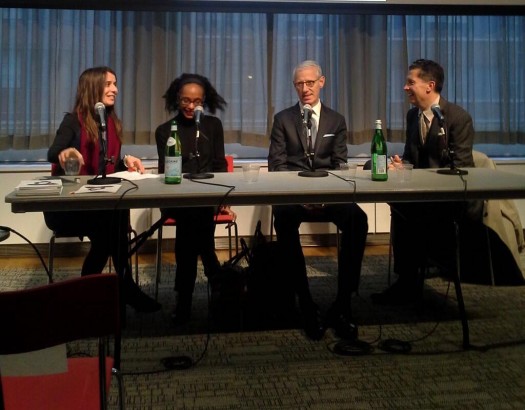Fashion Studies
Parsons School of Design's MA Fashion Studies
Fashion in the News: The Fast World of Fashion
The fast fashion phenomenon has been heralded as the democratization of fashion. Historically only a privilege for the wealthy, trend driven clothing has never been more accessible or more affordable. Fashion for all, right?
Recently, NPR’s program All Things Considered interviewed Elizabeth Cline, author of the book, Overdressed: The Shockingly High Cost of Cheap Fashion. Along with sharing her own personal experiences, Cline addresses the consequences of fast fashion. The success of chain stores such as H&M, Forever 21, and Zara have directly affected every aspect of the fashion system. With a constant demand for novelty, companies must continue to find new ways to cut manufacturing costs.
To continuously provide low-priced clothing, fast fashion brands also sacrifice quality. Simon Collins, Dean of Fashion at Parsons The New School for Design is quoted in the NPR story admitting, “You see some products and it’s just garbage. It’s just crap. And you sort of fold it up and you think, yeah, you’re going to wear it Saturday night to your party – and then it’s literally going to fall apart.”
Beyond selling a poor quality product, consumers need to also be aware of the impact fast fashion has on the environment. In the interview, Cline states, “There is a growing consensus that the mass production of cheap clothing is an enormous waste of resources such as fuel and water. While many people donate their clothing to charities and consignment shops, fast fashion tends to be so cheaply made that no one wants to buy it…Instead, it gets recycled into industrial rags and insulation, or even thrown out all together – generating the term ‘landfill fashion.'”
In China, where a lot of clothing is manufactured, there have been significant changes to instill higher wages for factory workers. However, in the world of fast fashion, low prices are the main selling point. Fast fashion companies are forced to move their production to places such as Bangladesh, where wages remain low. Because of poor working conditions, unsophisticated technology, and the constant demand for the product, the production of these goods can turn deadly. In November, a fire engulfed a clothing factory in Bangladesh, killing 112 workers.
From her interview with NPR, Cline wants the modern consumer to be more aware of the origin of the clothing that hangs in their closet. When purchasing clothing, ask the questions: who made this garment? What were the conditions under which this garment was made? As people are now more conscious of where their food and groceries come from, this conscientious thinking should now be turned towards our clothes. Our thought process should go beyond the price tag. More and more clothing companies, at every price point, are taking action in becoming more environmentally conscious and are committed to producing their clothing in safe, fair factories.
For more information, be sure to read or listen to the rest of NPR’s All Things Considered story, “In Trendy World of Fast Fashion, Styles Aren’t Made to Last.”




